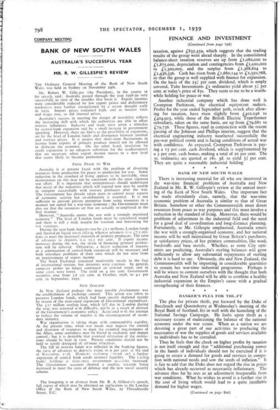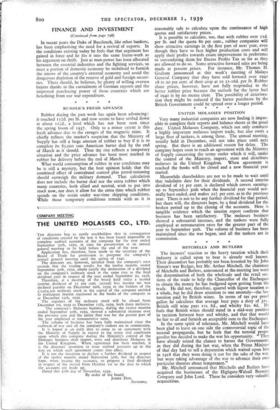BANKER'S PLEA FOR THL - FT The plea for private thrift, put
forward by the Duke of Buccleuch and Queensberry at Wednesday's meeting of the Royal Bank of Scotland, fits in well with the launching of the National Savings Campaign. He looks upon thrift as a necessary means of maintaining the balance of the national economy under the war strain. When as a nation we are devoting a great part of our activities to producing the necessaries of war the supplies of goods and services available to individuals has to be curtailed.
Thus he feels that the check on higher profits by taxation is not itself enough and that ". additional purchasing power in the hands of individuals should not be exercised if it is going to create a demand for goods and services in compe- tion with national needs and sow the seeds of inflation." It is fair to add that the Duke does not regard the rise in prices which has already occurred as necessarily inflationary. The advance thus far he sees as an adjustment inseparable from war conditions. What he wishes to avoid is a further rise in the cost of living which would lead to a quite justifiable demand for higher wages.
(Continued on page 80o)
FINANCE AND INVESTMENT
(Continued from page 798)
In recent years the Duke of Buccleuch, like other bankers, has been emphasising the need for a revival of exports. In the conditions existing today he feels that that argument has gained in force and he fits it into the same frame-work as his argument on thrift. Just as man-power has been allocated between the essential industries and the fighting services, so must a portion of domestic economy be mobilised to furnish the sinews of the country's external economy and avoid the dangerous depletion of the reserve of gold and foreign securi- ties. There should, he believes, be plenty of willing oversea buyers thanks to the curtailment of German exports and the improved purchasing power of those countries which are benefiting from our war expenditure.













































 Previous page
Previous page